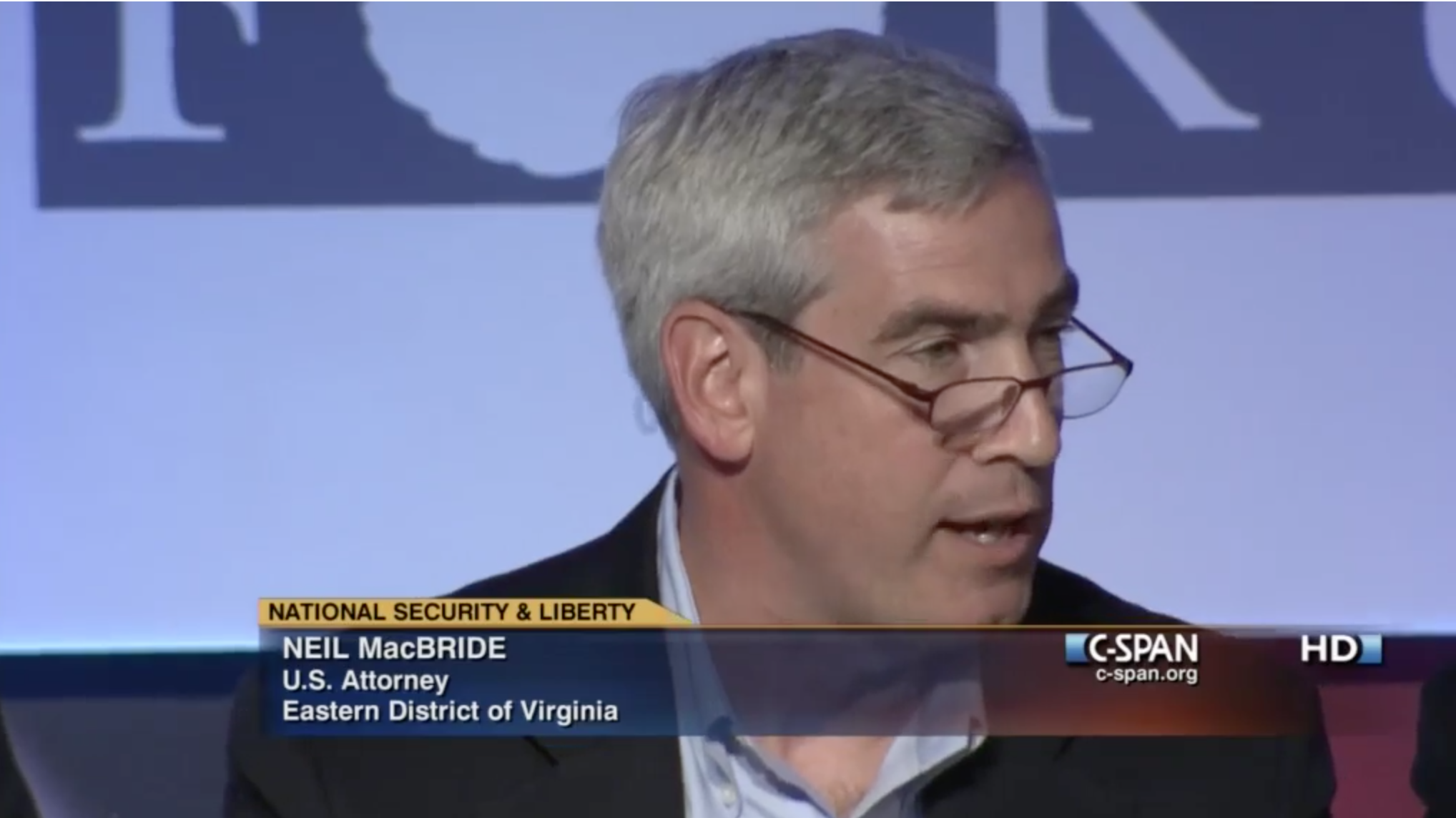Read this article on the original site.
President Biden recently nominated his former counselor Neil MacBride to be general counsel of the Treasury Department. If confirmed, MacBride would head up the department’s entire legal division, advising Treasury officials on how to enforce federal regulations. That’s a big job for someone whose record shows a pattern of helping corporations undermine those same federal regulations.
MacBride comes directly from corporate law firm Davis Polk, where he spent eight years leveraging his government experience as a U.S. attorney to defend Big Oil, Big Pharma, and many of the Wall Street giants which caused the 2008 financial crisis. He even sued the Treasury Department on behalf of climate villain ExxonMobil. If Biden’s goal is to undermine trust in government and abandon campaign promises, MacBride is an excellent choice—at Treasury, he would be advising on regulations that would impact the same corporations which have made him wealthy. The White House could not be reached for comment.
MacBride’s career history illustrates this well, beginning with his years at Davis Polk, which is no stranger to the revolving door between government regulators and corporate legal work. When he was hired, the managing director of Davis Polk said the hire reflected the firm’s desire to increase its presence in Washington at a time of heightened regulatory and criminal enforcement. MacBride then was partner and co-chaired Davis Polk’s White Collar Defense & Investigations Group.
MacBride defended those white-collar clients, including Morgan Stanley in litigation surrounding its fraudulent sales of mortgage-backed securities. He also represented S&P over its fraudulent ratings of those securities. Between one of the banks that bundled and sold bad bonds, and the rating agencies which presented them as infallible, MacBride has personally defended two of the corporations most responsible for the global financial crisis.
MacBride also represented oil behemoth ExxonMobil in a case against the Treasury Department itself. Exxon was protesting a $2 million fine it received from the Office of Foreign Assets Control for signing legal documents for a Russian oil and gas project with Rosneft President Igor Sechin, who was sanctioned under U.S. law following the Russian invasion of Crimea. MacBride got Exxon off on a technicality, arguing that its contracts were with the company, which itself was not sanctioned, instead of with Sechin, who was sanctioned in an individual capacity. For MacBride to have fought so intentionally on behalf of Exxon against the department he is now expected to represent has gross implications for exactly which corporations he will recommend legal leniency for when on the job.
MacBride’s clients also included a senior Fiat Chrysler manager who manipulated emissions functions to deceive investors and several other automobile executivesinvolved in emissions scandals. These are especially worrying considering the Securities and Exchange Commission will soon be announcing new requirements for disclosing climate risks, and the entire financial regulatory sphere will play a part in enforcing those requirements. To have the top legal counselor at the Treasury Department, who will be in close contact with the Cabinet secretary who chairs the Financial Stability Oversight Council, be experienced in the art of skirting regulation meant to address the climate crisis, is distressing to say the least.
The list continues: MacBride defended Cisco Systems, when the corporation was investigated for a “vast kickback corruption scheme” involving Russian government officials that allegedly breached U.S. anti-bribery law in Russia; JP Morgan Chase; Wells Fargo; Facebook; AstraZeneca; and oil drilling and natural gas company XTO Energy, to name a few. Under President Biden’s Executive Order on Ethics Commitments, MacBride would be required to recuse himself from cases involving former clients for a period of two years.
What separates MacBride from any other run-of-the mill lawyer, and why his potential to undermine the Treasury Department’s mission is so great, is that his particular expertise lies in helping corporations dodge accountability for regulations set and enforced by the department itself. He is loyal to the very actors which, in the case of Morgan Stanley and S&P, caused the great financial crisis of our time, and which are, in the case of Exxon, profiting recklessly without care for how their own business model is a massive threat to the financial system. A lawyer like MacBride acting as the top lawyer for the Treasury Department is an inevitable sentence for corporations to continue evading regulation, and for the public to get hurt in the process.
This administration’s Treasury Department is responsible for addressing crises with life-or-death consequences—to mitigate climate chaos (and therefore necessarily utilize their standing as a financial regulator to encourage the end of fossil fuel financing), to ensure financial stability, and to raise standards of living and make the economy work for average people.
Democrats showed up to give Biden the presidency based on his campaign promises to address climate change and wealth inequality. Confirming MacBride, who has represented the very corporations he would now be regulating, is a surefire way to decrease trust in government at a time when Democrats need it more than ever. Why would voters have faith in an administration who says one thing, then turns around and appoints its corporate cronies to crucial financial regulatory positions, banking on the fact that everyday people won’t notice or understand the stakes?
Biden should immediately revoke the nomination of MacBride and, instead, nominate a public-serving leader willing to take the most broad view of what is legally possible for the Treasury Department to do. The next several years will be turbulent as the U.S. recovers from a destabilizing pandemic, grapples with unemployment and inequality, and transitions to a green energy economy. MacBride is simply not fit for a job with such influence.
Photo: C-SPAN

